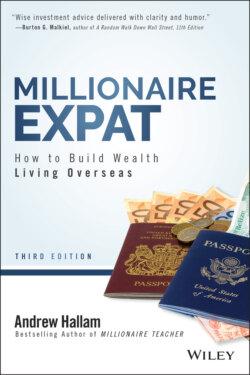Читать книгу Millionaire Expat - Andrew Hallam - Страница 29
Why Brokers Want to Muzzle Warren Buffett
ОглавлениеMost financial advisors wish to muzzle the brightest minds in finance: professors at leading business universities, Nobel Prize laureates in economics, the (rare) advisors with integrity, and billionaire businessmen like Warren Buffett. Brokers make more when experts are mute.
Warren Buffett, chairman of Berkshire Hathaway, is well known as history's greatest investor. And he criticizes the mutual fund industry, suggesting, “The best way to own common stocks is through an index fund.”7
That's why Warren Buffett instructed his estate's trustees to put his heirs' proceeds into index funds when the great man dies.8
Nobel laureate Sharpe explains it's delusional for most people (and most advisors) to anticipate beating market indexes over the long term. In a 2007 interview with Jason Zweig for Money magazine, he stated his view:
| Sharpe: | The only way to be assured of higher expected return is to own the entire market portfolio. You can easily do that through a simple, cheap index mutual fund. |
| Zweig: | Why doesn't everyone invest that way? |
| Sharpe: | Hope springs eternal. We all tend to think either that we're above average or that we can pick other people [to man‐ age our money] who are above average…and those of us who put our money in index funds say, “Thank you very much.”9 |
Daniel Kahneman, another famed Nobel Prize–winning economist, echoed the sentiment during a 2012 interview with the magazine Der Spiegel:
“In the stock market…the predictions of experts are practically worthless. Anyone who wants to invest money is better off choosing index funds, which simply follow a certain stock index without any intervention of gifted stock pickers…we want to invest our money with somebody who appears to understand, even though the statistical evidence is plain that they are very unlikely to do so”.10
Merton Miller, a 1990 Nobel Prize winner in economics, says even professionals managing money for governments or corporations shouldn't delude themselves about beating a portfolio of index funds:
Any pension fund manager who doesn't have the vast majority—and I mean 70 percent or 80 percent of his or her portfolio—in passive investments [index funds] is guilty of malfeasance, nonfeasance, or some other kind of bad feasance! There's just no sense for most of them to have anything but a passive [indexed] investment policy.11
In the documentary program Passive Investing: The Evidence the Fund Management Industry Would Prefer You Not See, many of the world's top economists and financial academics voice the futility of buying actively managed funds. But as the title suggests, it's the program most financial advisors will never want you watching.12
